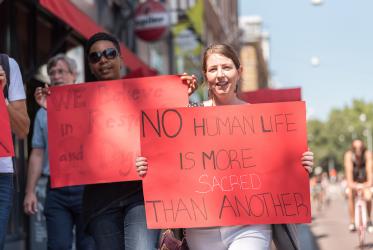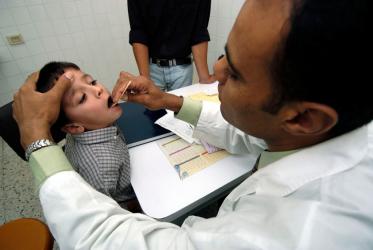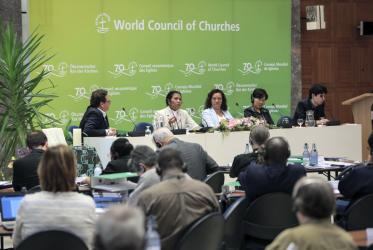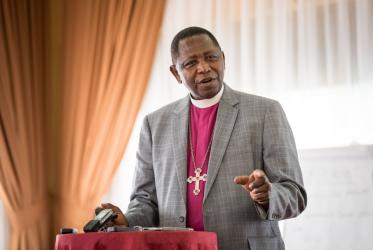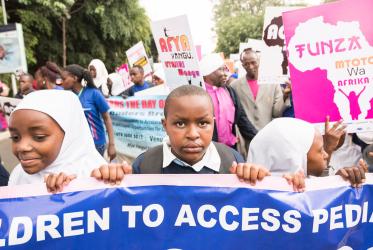Displaying 201 - 220 of 339
07 December 2018
Dr Cecile De Sweemer, the doer of God
30 November 2018
WCC Eco-School encourages youth to become eco-ambassadors
08 November 2018
WCC executive committee tackles public issues
07 November 2018
Don’t give up the vision of health care for all! urges WCC
07 November 2018
WCC welcomes new staff
06 November 2018
In Kenya, issues of young people come to the forefront
19 October 2018
WCC developing toolkit for health-promoting churches
02 August 2018
Congolese churches respond to Ebola outbreak
01 June 2018
WCC participates in 71st World Health Assembly
29 May 2018
“Facing the storm of HIV, we can move together, be agents of change”
06 September 2017
UN discussion focuses on women, HIV and property rights
21 March 2017


